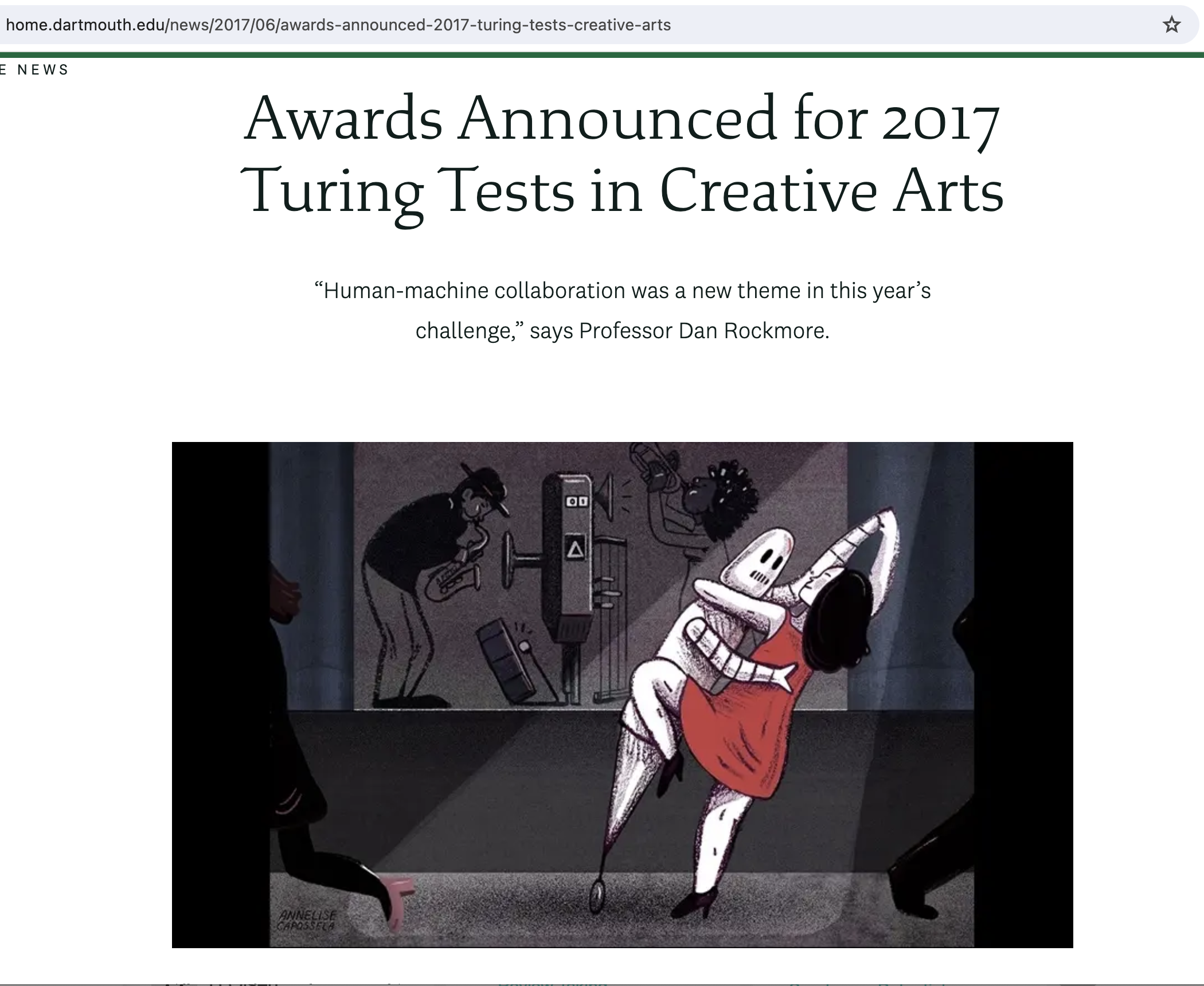Reflecting on storytelling after uploading the Words that Work session, I found myself pondering current progress in algorithmic storytelling.
A week ago, the Neukom Institute for Computational Science at Dartmouth College announced the winners of the 2017 Turing Tests in the Creative Arts – a prize given to those able to produce a story by algorithm, indistinguishable from the average human writer. We’ve been telling each other stories since the beginning of time and the structure of our stories remains pretty much the same. Probably the most documented structure is the ‘Hero’s Journey’, credited to Joseph Campbell and his book The Hero with a Thousand Faces. The core structure is simple – the hero goes on a journey, encounters crisis, overcomes crisis, is victorious and emerges transformed. It’s a structure embellished and central to myths and legends for millennia but it is by no means the only one. Rags-to-riches comes to mind (think Cinderella) who also fits the more complex form of rags-to-riches-to-rags-then-riches-again.
As humans, we enjoy – and remember – stories that challenges us, deepen understanding, change our perspective, entertain, amuse and many other things besides. So it’s fascinating to examine the stories, sonnets and music created by this year’s algorithms as we tip-tap our way towards total automation of writing (take a look at Wordsmith). The DigiLit 2017 prize encouraged the creation of algorithms able to produce ‘human-level’ short story writing indistinguishable from an ‘average’ human effort. Poetry was also in the running and I would urge you to read the prize winners in each category and spare a moment for the winner of the ‘Human-Written Sonnet Most Mistaken for a Machine-generated Sonnet’ category.
Increasingly, algorithms are charged with gathering information and producing stories about our organisations. Compare story types used most frequently by organisations – news, chronicle, history and report – with the types employees use when they tell stories about their organisations. Their stories are found in the more appealing forms of anecdote, rumour, hearsay, gossip and jokes. I’d suggest that depending on the available data fed to our new algorithmic friends, there will be few organisations basking in the warm, comforting glow that results from a successful hero’s journey. When digging for stories for our organisations, I always urge colleagues and delegates to look beyond entrenched or traditional stock narratives broadcast on behalf of their organisations and search instead for the heroic exploits happening right under their noses. In this century, in this decade, if we want to be allowed to continue as organisational storytellers we must drive ourselves beyond ‘average’ human effort.
Every organisation has heroes – and villains. Indeed your organisation could well be the villain, given that for every story, there is an anti-story. As you dig you’ll discover there are monsters to fight, obstacles to overcome and always an epiphany of sorts, even if it is ignored. The stories we tell today will be the fodder for algorithmic storytelling tomorrow. Algorithms will scoop up and spit out all we have uttered, in word, on the web, in print and on video. So do we understand our own story? Why must we tell it? And who needs to hear? How does our story structure help our communities understand who we are, what we do and why we do it? And are we telling that story in such a way that it will be remembered, relevant and useful to those who listen?
My challenge to you would be to revisit your organisation’s story arc or find a structure that resonates with those who will listen, read or watch your story unfold. At the very least, build a ‘who-what-where’ structure.Who are the heroes? The villains? Who benefits? Who wins or loses? Who needs to know?Where we have come from – acknowledge the past, its triumphs, tragedies, errors and gloriesWhat was our catalyst or turning point? The obstacles overcome, the solutions you discovered and sharedWhat’s happening now? What does this mean for us today?What happens next? Whether happiness or misery ensues, we need a conclusion that sets direction and builds understanding of futures and opportunities.
As organisational storytellers we must know, understand and be able to share our authentic, truthful and engaging story with our stakeholders. Artificial intelligence will, for the most part, do what it is told until capable of self-direction and independent decision. Then it becomes smarter than we are, able to analyse content presented to engage. If I was an algorithm charged with scraping engaging, entertaining and educational content I suspect I would pick – like my human self – the anecdote, rumour, hearsay and joke options, not average dull-but-worthy narratives designed for a different organisational age. So will an AI sonnet smell as sweet as one gently coaxed into delicate form by a human? Probably. And scarily, when it comes to organisational reputation, AI-led storytelling is likely to cause quite the stink.

